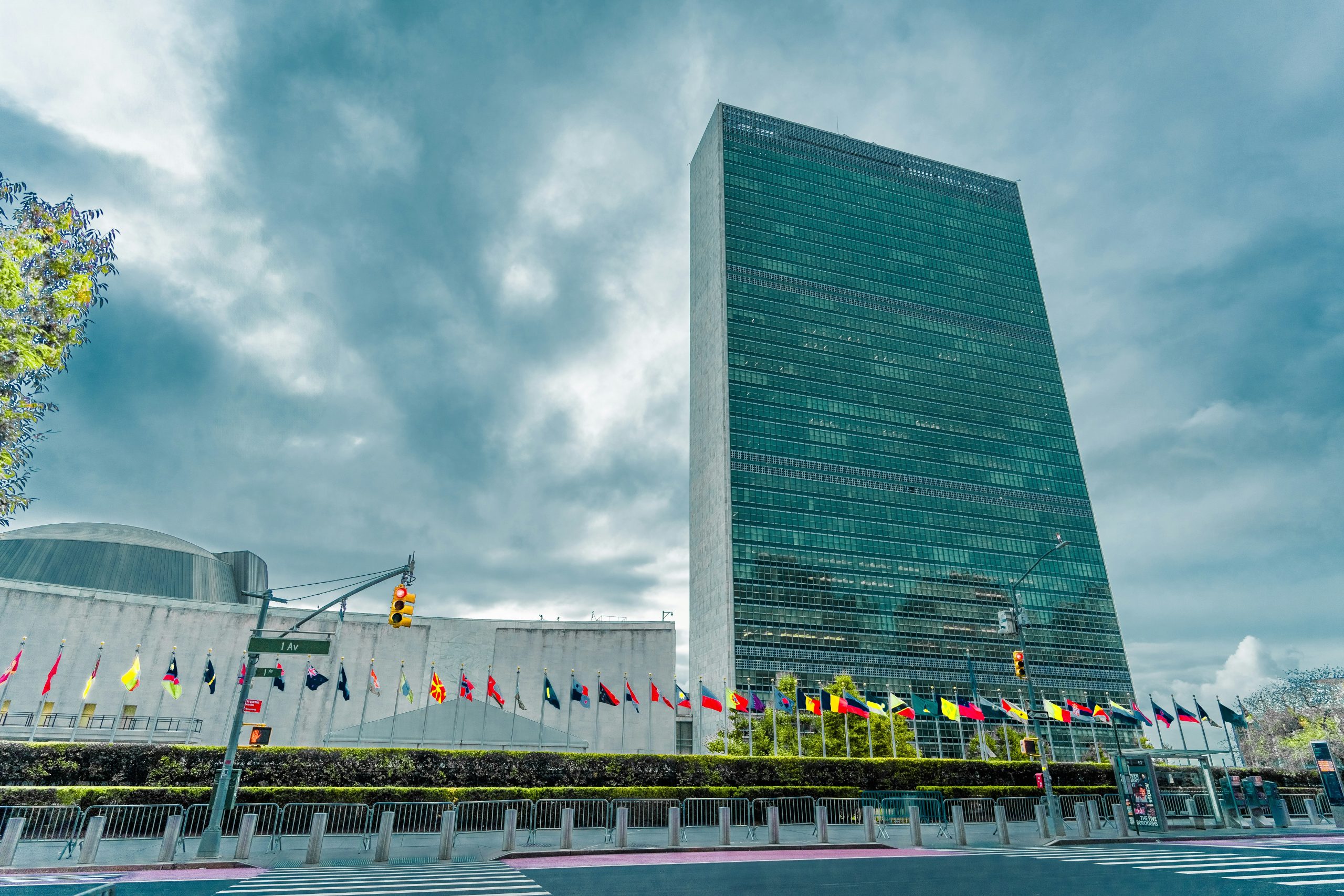Demanding Disarmament and Demilitarisation at the UN General Assembly
On 23 September 2025, the United Nations General Assembly will commence its annual high-level general debate. Heads of state and government, foreign ministers, and other officials in New York will be staking out their positions on all issues confronting the world today—and WILPF’s disarmament team will be demanding urgent disarmament and demilitarisation for people and the planet.

(Image credit: Nils Huenerfuerst | Unsplash)
By Ray Acheson
17 September 2025
The high-level debate of the UN General Assembly, which will begin on 23 September 2025, marks 80 years since the founding of the United Nations. Its original members were determined to “save succeeding generations from the scourage of war.” But the global military-industrial complex and it war profiteers have actively prevented the achievement of this goal. Instead, militarised states and private corporations have built political economies reliant on war, sending societies spiralling into violence and creating the conditions for neverending armed conflict, occupation, and genocide.
The opening weeks of the UN General Assembly each September are mostly about speeches and spectacle. But they also provide opportunities for officials from most countries of the world to meet at the highest level, to set out their priorities, and to apply pressure for policy changes. The meetings held during this time also provide an opportunity for activists and organisers to demand better from their governments and from this global institution.
Disarmament priorities at the General Assembly
WILPF programmes will be pressing for real action for people and the planet across a range of issues during the UN General Assembly’s work, from finacing for peace to climate justice to women’s rights and gender justice. The Reaching Critical Will team will be focusing on amplifying WILPF’s demands for disarmament and demilitarisation, including:
- An end to arms transfers and other material support to Israel, and stopping the global arms trade and war profiteering more broadly;
- The abolition of nuclear weapons;
- To stop using explosive weapons in populated areas;
- To not build or use autonomous weapons or AI-enabled weapon systems;
- To end the rampant proliferation and use of small arms and armed drones;
- To uphold international law on cluster munitions, landmines, biological weapons, and chemical weapons; and
- To significantly reduce military spending, divest from the military-industrial complex, and invest instead in peace, economic and envionrmental justice, gender equality, and other social goods.
The Reaching Critical Will team will monitor the high-level debate and track what governments say about weapons and war. We will post extracts from statements in our UNGA Disarmament Index and provide an analysis at the end of the debate.
The RCW team will also follow what’s happening with two high-level events on 26 September: the International Day for the Elimination of Nuclear Weapons and the Fourteenth Conference on Faciliating the Entry Into Force of the Comprehensive Nuclear-Test-Ban Treaty. Our demand for both of these meetings is clear: the total abolition of nuclear weapons is the only way to ensure these weapons are never detonated again; to prevent any further harm from uranium mining, radioactive waste, and nuclear development and deployment; and to free up the hundreds of billions of dollars a year wasted on nuclear bombs, missiles, and more.
How can you get involved?
While RCW will be taking forward WILPF’s demands at the international level, it’s also important that national governments hear from people at the local level! You can use the priorities listed above to make urgent calls on your government, depending on what is most relevant nationally.
You can also use our latest First Committee Briefing Book to find out more information and specific demands from various campaigns and coalitions working across all disarmament issues, and share this resource and its recommendations with your government.
If you want to watch the high-level debate or either of the nuclear weapon-related meetings, UN Web TV should be streaming live at https://media.un.org. RCW will also provide reports after these meetings—be sure to subscribe to Reaching Critical Will’s mailing list today!
RCW resources for more information
RCW’s First Committee Briefing Book
WILPF Move the Money Resources
WILPF Submission to the UN Secretary-General’s Report on Autonomous Weapon Systems
RCW Briefing Paper for Arms Trade Treaty Delegations Regarding Arms Transfers to Israel
RCW’s Review of A New Agenda for Peace’s Recommendations for Disarmament and Demilitarisation

